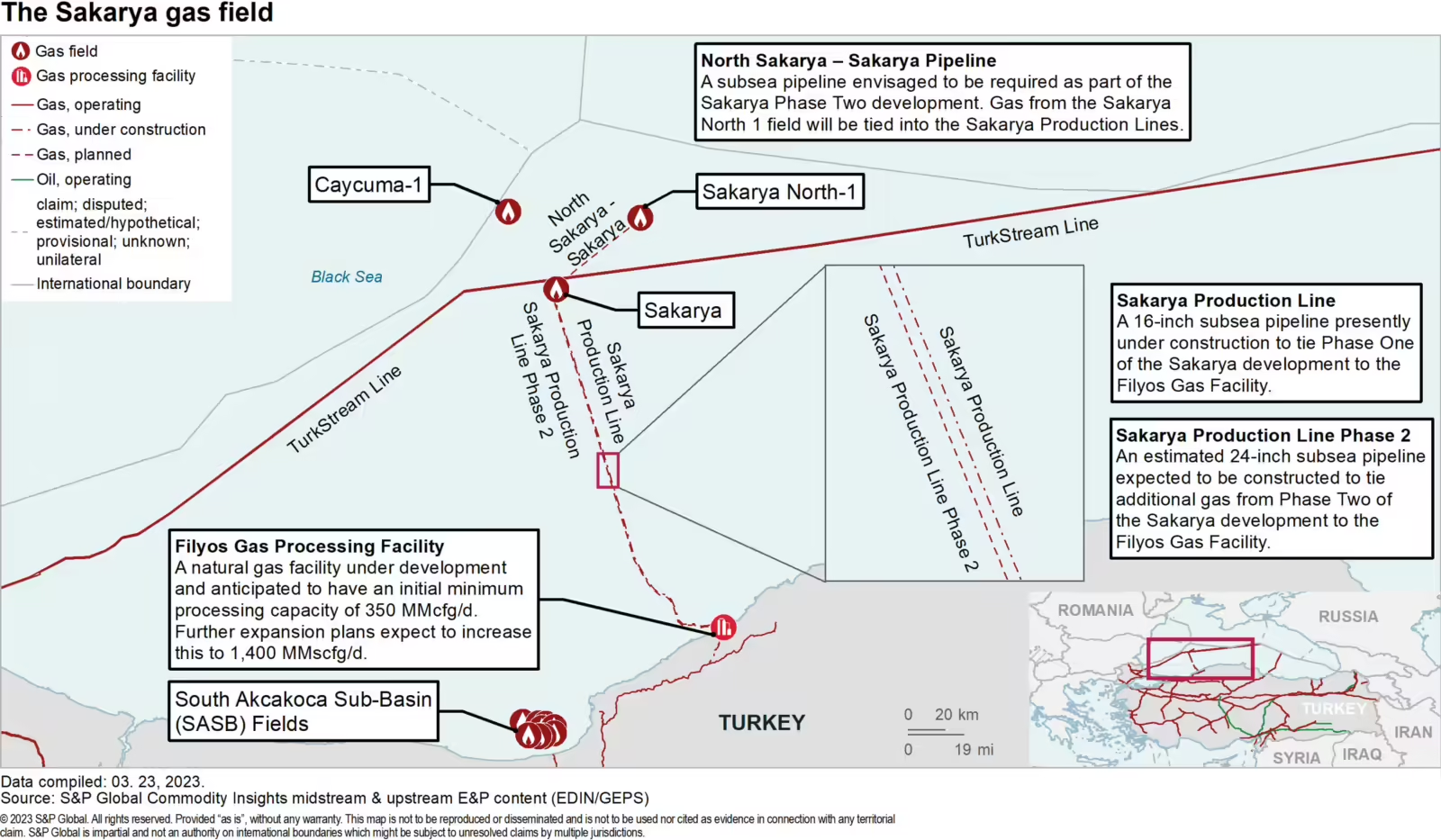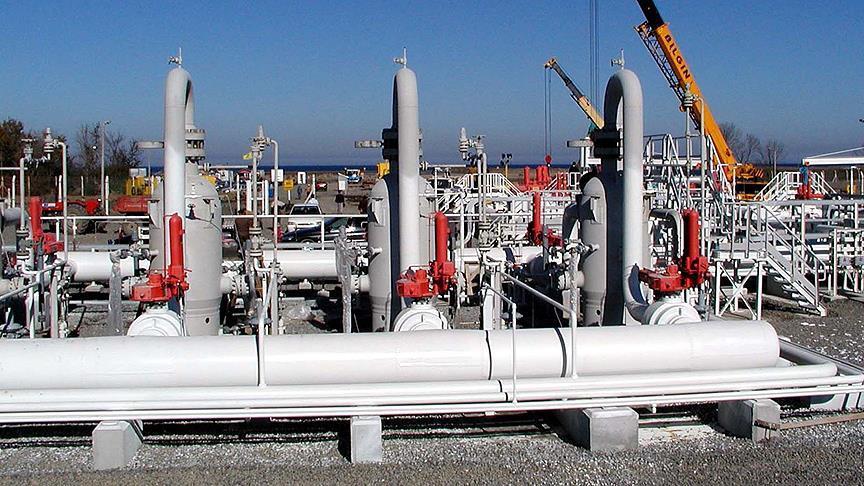Türkiye to produce 9.1M cubic meters of gas daily at Sakarya field by 2025
 Türkiye's Fatih and Kanuni drillships are seen in the Sakarya gas field in the Black Sea on July 29, 2021. (AA Photo)
Türkiye's Fatih and Kanuni drillships are seen in the Sakarya gas field in the Black Sea on July 29, 2021. (AA Photo)
Türkiye’s Energy and Natural Resources Minister Alparslan Bayraktar announced that gas production at the Sakarya Gas Field will reach 9.1 million cubic meters per day by the first quarter of 2025, enough to meet the energy needs of 4 million households.
The minister also outlined ambitious plans for the country’s renewable energy future, including a significant boost in wind and solar power capacity by 2035.
Türkiye’s major gas production milestone in 2025
During the Energy Transition and Renewable Energy 2035 press conference, Bayraktar revealed plans to ramp up production at the Sakarya Gas Field to meet Türkiye’s growing energy demands. The field is expected to produce 9.1 million cubic meters of gas daily, making a significant contribution to the country’s energy security. “This will cover the needs of 4 million homes,” Bayraktar said.

Renewable energy targets of Türkiye for 2035
In addition to gas production, Türkiye is also pushing forward with its renewable energy goals. Bayraktar stated that by September 2023, renewable energy sources accounted for 59% of the country’s total installed electric power capacity. He outlined plans to increase wind and solar power generation fourfold by 2035, reaching 120,000 megawatts (MW) in capacity.
Bayraktar emphasized the importance of renewable energy in Türkiye’s long-term energy strategy, saying, “Our goal is to make Türkiye a global leader in renewable energy while also strengthening our energy security.”

New YEKA tender dates announced
Bayraktar also announced new tender dates for the renewable energy resource areas (YEKA) initiative. The tender for wind energy (RES) is scheduled for Jan. 28, 2025, while the solar energy (GES) tender will take place on Feb. 4, 2025.
These projects are expected to attract significant investment and further bolster Türkiye’s renewable energy infrastructure.

Legislative reforms in energy sector
The minister also highlighted upcoming legislative changes aimed at modernizing the country’s energy sector. These include new regulations on geothermal energy, small modular reactors, and the Heat Law, which are expected to be key components of Türkiye’s energy transformation in the coming years.
Bayraktar stressed the need for state energy companies such as BOTAS and EUAS to become more flexible and competitive, with the goal of turning them into regional leaders.



